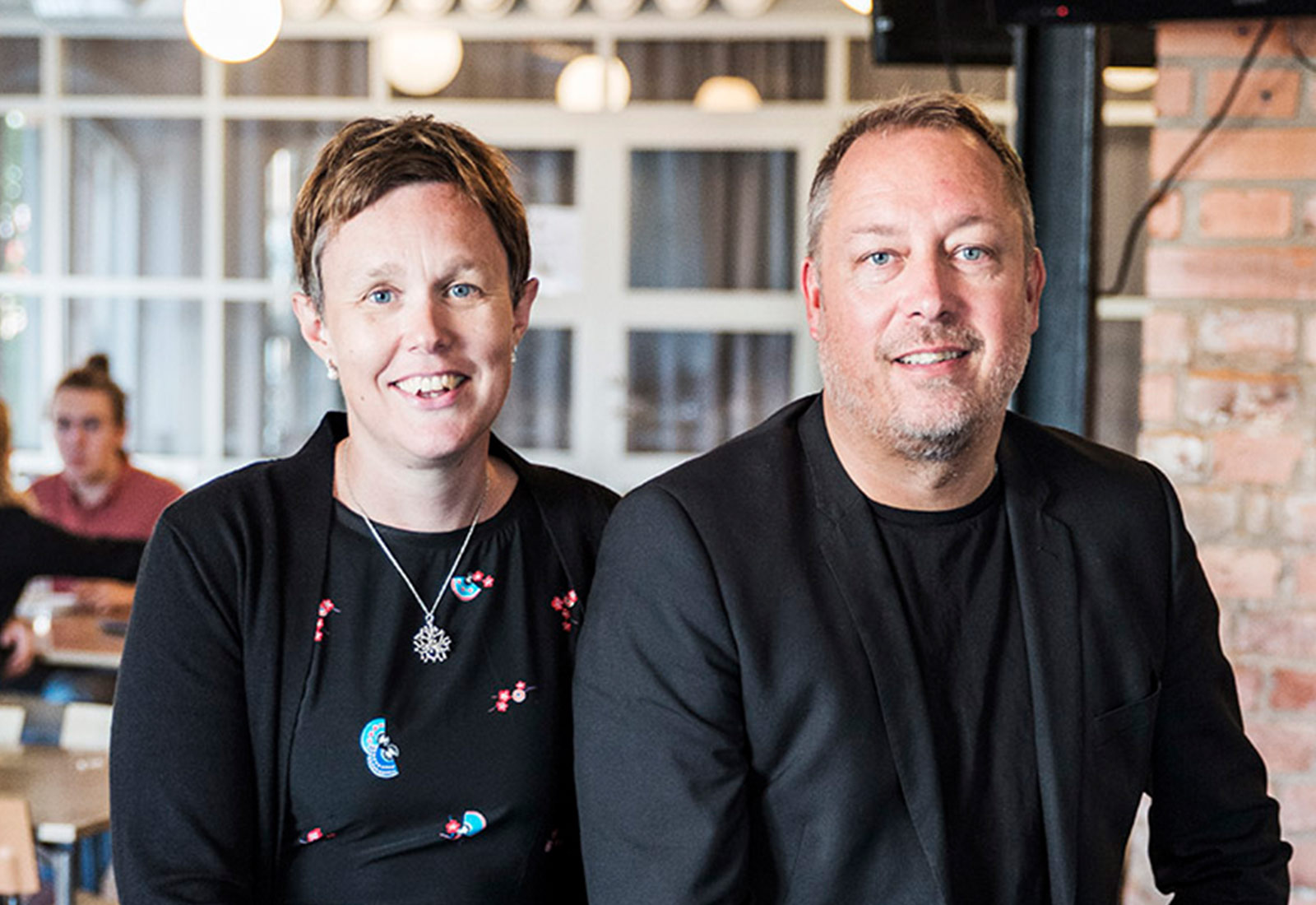
Emma Rosén is the deputy principal at MediaGymnasiet in Nacka outside Stockholm, where they just invested in WeLib.
MediaGymnasiet is one of Sweden’s oldest independent schools. Founded in 1993, they have maintained their methods of teaching through 3 distinct programs which have a clear focus on the media; Aesthetic program, Social Sciences program and Technology program.
The aesthetic program includes Games, Photos, Animations & Graphic Design as well as Film & TV. The Social Sciences program includes Journalism and the Technology program focuses on Digital Production and Code.
All of the programs include production, during which students receive supervision and the opportunity to develop as much as possible, additionally they often also work in projects where they can, for example, work on projects for clients from outside of the school.
“Our pupils and teachers are good with digital tools and so most of the work is done digitally, but of course we also have sketch books, watercolour painting in aesthetic communication and labbing in chemistry”, says Emma.
In the case of school libraries, MedieGymnasiet previously had a collaboration with the local library, but Emma says that they felt that the students were much more digital.
“With the help of a digital library, we lower the threshold into reading. We also have physical books on our learning square, but when it comes to reading books outside of what is necessary for educational purposes, we believe it will increase with the help of digital resources,” says Emma.
They also want to get started using the digital sources the school already has, and Emma hopes that WeLib will increase both the use and accessibility of the school’s resources.
“We look forward to making it easier for both students and teachers to use digital resources, partly thanks to the possibility of collecting resources in one place, and that it is possible to search all sources. We are also looking forward to a larger library when it comes to class sets, which we hope will increase our students’ reading,” continues Emma.
MediaGymnasium’s WeLib will be able to contribute to thinking about sources other than those that are written or in movies. The pupils, for example, make game productions as upper secondary school work, which could inspire and be searchable for future students. The school library becomes the place where students’ work is preserved and can be used again.
To learn more about WeLib, receive pricing information, or if you have any further questions, please follow the links below:




